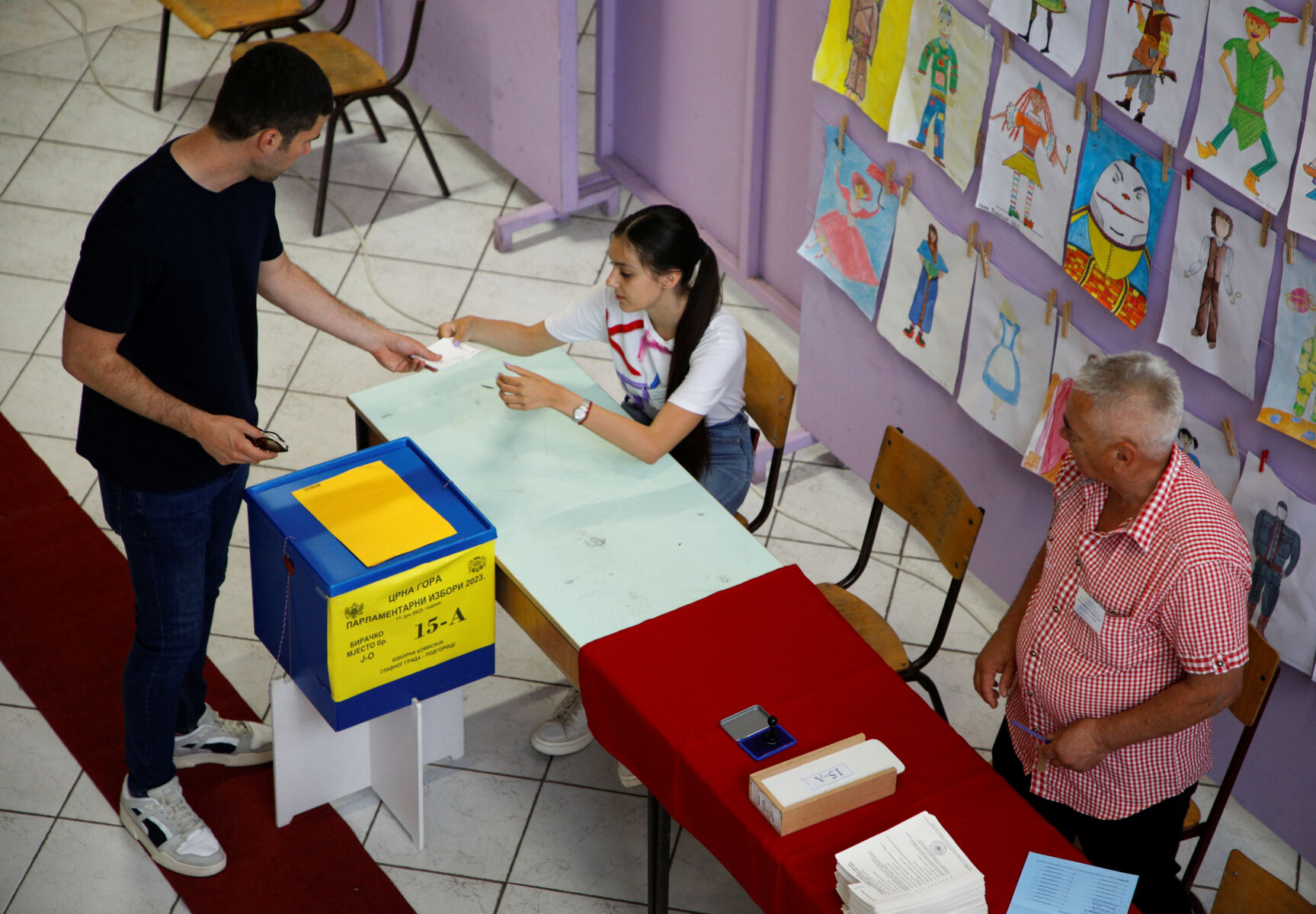Montenegro snap election tests EU path amid political turmoil

In Montenegro, a snap parliamentary election is taking place, which could shed light on the future of the small NATO member in the Balkans as it grapples with political divisions and instability, potentially affecting its path towards joining the European Union. With fifteen coalitions and parties vying for votes, over 542,000 registered voters will determine the composition of the 81-seat parliament in Montenegro’s sixth general election since adopting a multiparty system in 1990.
The political landscape in the Balkan nation has been in turmoil since the removal of long-serving leader Milo Djukanovic in April. Polls and analysts suggest that the centrist Europe Now movement, spearheaded by financial expert Milojko Spajic, 37, and current president Jakov Milatovic, is the frontrunner, but may not secure enough parliamentary seats to form a new government independently.
Spajic, a former finance minister responsible for economic reforms in 2021 that led to increased average wages, now pledges further pay rises and a reduction in the working day from eight to seven hours. At a pre-election rally, Spajic, who could be the country’s next prime minister, stated, “I am very interested in realising the plan that I presented to the citizens. I will resign if I fail to realise it.”
Meanwhile, the Democratic Party of Socialists (DPS), which experienced a decline in popularity after three decades of dominance under Djukanovic, has a new leadership seeking a political comeback. Party leader Danijel Zivkovic accuses the current government of jeopardising Montenegro’s European Union path and promises to unblock it if DPS returns to power. Montenegro, a scenic Adriatic Sea country with a population of approximately 620,000, was once considered the frontrunner to join the EU among Western Balkan countries.
Djukanovic led Montenegro to independence from Serbia in 2006 and defied Russia to join NATO in 2017. However, an alliance of parties favouring closer ties with Serbia and Russia ousted DPS from power in the 2020 parliamentary elections. This new ruling alliance soon fell into disarray, stalling Montenegro’s path towards the EU and creating a political deadlock. The government collapsed in a no-confidence vote last year but remained in office for months due to the deadlock.
The United Reform Action coalition, which includes acting Prime Minister Dritan Abazovic, and a pro-Serbian and Russian coalition called For the Future of Montenegro, are also participating in the Sunday election. Abazovic, who portrays himself as an anti-mafia leader in a country plagued by crime and corruption, promises several measures to improve voters’ living standards. “When we defeat the mafia, there will be [money] for everyone,” Abazovic said recently. “We will establish a justice fund, which would return the stolen funds to the budget of the state and all citizens.”
The election campaign was disrupted this week by Abazovic and Europe Now party leader Spajic exchanging accusations over South Korean “crypto king” Do Kwon. Kwon was arrested in Montenegro in March on an international arrest warrant, along with another South Korean citizen, in connection with a US$40bn crash of his Terraform Labs’ cryptocurrency that devastated retail investors worldwide. Both South Korea and the United States have requested his extradition from Montenegro, where he is on trial for allegedly using a forged passport. Abazovic has claimed that Spajic had close business contacts with Do Kwon, while Spajic labelled Abazovic’s allegations “political persecution” and accused him of abusing Montenegro’s institutions while creating an election week controversy “out of fear of losing power”.
Latest Thailand News
Follow The Thaiger on Google News:


























